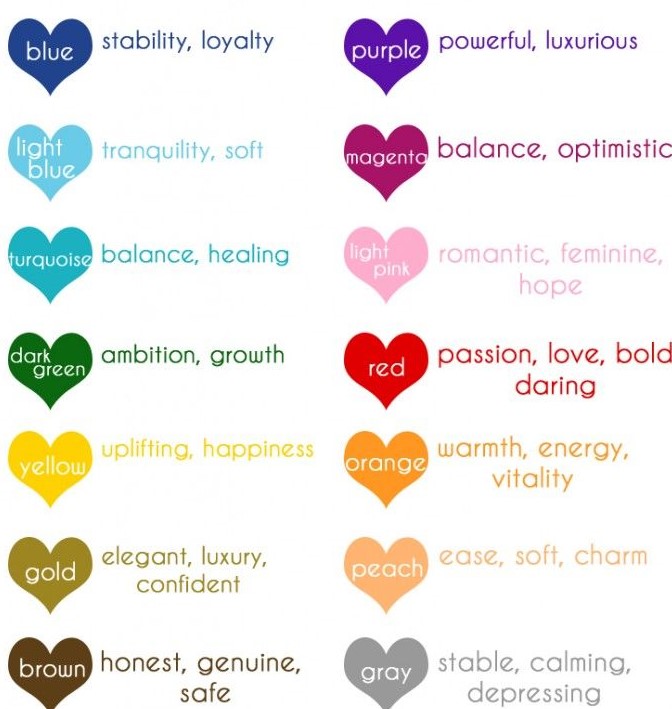Colors have a profound impact on our feelings and perceptions, often serving as a universal language that transcends words. When it comes to the symbolism of colors, the heart is frequently used as a metaphor to convey emotions, relationships, and personal connections. Each color associated with the heart can evoke different feelings, signifying a range of emotions from love and passion to jealousy and grief. Understanding heart color meaning can illuminate the nuances of our emotional landscape, guiding us in both personal reflections and interpersonal interactions.
The heart color meaning is not just a fascinating topic; it is a lens through which we can explore our emotions and the emotions of those around us. From romantic relationships to friendships, the color of one's heart can symbolize the depth and nature of those connections. Whether it's a bright red heart representing fiery love or a cool blue heart signifying tranquility, these colors can help us articulate complex feelings in a more relatable way. As we delve deeper into the world of color symbolism, we can uncover insights that enhance our emotional intelligence.
As we navigate through life, the significance of heart colors can also serve as a guide for self-discovery and personal growth. By recognizing what each color represents, we can better understand our emotions and the emotional currents that flow through our relationships. This knowledge can foster better communication, empathy, and connection with others. So, let's embark on a journey to explore the heart color meaning and unveil the emotional lexicon hidden within each hue.
What Does a Red Heart Symbolize?
One of the most recognized symbols in the realm of love is the red heart. It is often associated with:
- Passion: Red hearts signify intense feelings of love and attraction.
- Romance: They are commonly used to symbolize romantic relationships and deep affection.
- Desire: The color red evokes a sense of desire and longing that is both powerful and compelling.
Is There a Deeper Meaning Behind a Pink Heart?
The pink heart carries a softer, gentler meaning compared to its red counterpart. It often represents:
- Affection: Pink hearts signify tender feelings and affection.
- Compassion: They are often associated with kindness and compassion towards others.
- Friendship: Pink is frequently used to symbolize platonic love and friendships.
How Does a Blue Heart Differ from Other Heart Colors?
Blue hearts convey a different set of emotions, often linked to:
- Calmness: The color blue is associated with peace and tranquility.
- Trust: Blue hearts can symbolize trust and loyalty in relationships.
- Sadness: In some contexts, blue can also represent feelings of sorrow or melancholy.
What Does a Green Heart Represent?
The green heart is a symbol of renewal and growth. It often signifies:
- Healing: Green hearts are associated with emotional healing and recovery.
- Harmony: They represent balance and harmony in relationships.
- Nature: Green is often linked to nature and can symbolize a connection with the earth.
Why Is a Yellow Heart Associated with Happiness?
The yellow heart embodies the essence of joy and happiness. It typically symbolizes:
- Cheerfulness: Yellow hearts convey feelings of joy and positivity.
- Friendship: They often represent platonic love and the joy of friendship.
- Optimism: Yellow is a color of hope and can signify a bright outlook on life.
What Does a Black Heart Mean in Different Contexts?
The black heart can have various interpretations, often influenced by context. It may signify:
- Grief: A black heart can represent loss and mourning.
- Dark Humor: In some contexts, it may symbolize a sense of humor that embraces darker themes.
- Rebellion: Black often embodies a sense of defiance and rebellion against societal norms.
How Can Understanding Heart Color Meaning Enhance Relationships?
Understanding heart color meaning can significantly improve our interpersonal relationships. By communicating openly about our feelings and the emotions represented by different heart colors, we can foster deeper connections with others. For instance, expressing a desire for a green heart can indicate a need for healing and support, while a blue heart can communicate a need for reassurance and trust. Recognizing these colors in ourselves and others allows for greater empathy and understanding.
Can Heart Color Meanings Change Over Time?
Yes, heart color meanings can evolve based on personal experiences, relationships, and emotional growth. For example, a person may initially associate a red heart with passionate love, but over time, it might come to symbolize a deeper, more profound connection as the relationship matures. Similarly, an individual’s perception of a black heart may shift from one of grief to one of empowerment and resilience as they navigate their emotions and experiences.
In conclusion, the heart color meaning serves as a rich tapestry of emotions and connections, each hue representing a unique facet of our human experience. By embracing the significance of these colors, we can enhance our emotional intelligence, foster better relationships, and deepen our understanding of ourselves and others. Whether you’re embracing the fiery passion of a red heart or the calming tranquility of a blue heart, each color offers a unique insight into the complexities of love and emotion.
Unveiling The Mystery: Bivol's New Wife
Exploring The Life And Achievements Of Candice Madrid
Unveiling The Allure Of Aishah Sofey Naked: Exploring Her Journey


